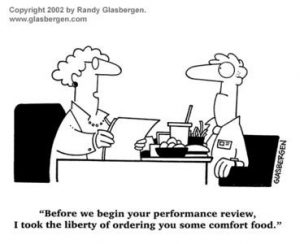The joys and perils of office friendship
 Most professionals spend more of their waking hours in the office than at home; we see our office collogues more and interact more with them than our family members. Naturally, we get more drawn to our office colleagues. While our general philosophy of friendships may be “the more, the merrier,” making friends in the office has a distinctive set of pros and cons. While regular friendships depend on sharing trust, confidence, sharing our personal secrets, and confiding little or big problems in our friends, getting this close at work place with somebody has its drawbacks.
Most professionals spend more of their waking hours in the office than at home; we see our office collogues more and interact more with them than our family members. Naturally, we get more drawn to our office colleagues. While our general philosophy of friendships may be “the more, the merrier,” making friends in the office has a distinctive set of pros and cons. While regular friendships depend on sharing trust, confidence, sharing our personal secrets, and confiding little or big problems in our friends, getting this close at work place with somebody has its drawbacks.
It’s a bit tricky to get close to somebody at workplace. We cannot hide away from competition, creation of new alliances, breaking of existing alliances, dependencies, backstabbing and gossiping. We become vulnerable if we are not aware of what is going on in the office politics. Often, our nonworking selves and relationships are significantly more casual than is warranted for a professional situation. And, if we try mix the two, the result may be messy politics and dynamics that can complicate our life both at work and at home. Another common problem can arise if you get promoted and your ‘friend’ is not – or your friend gets promoted and you don’t: promotions usually change workplace friendships. People start resenting friends once they get promoted to higher positions.
Many researches show that people get attracted to their co-workers at the place of work; it is where the mainstream of couples meet. And, there’s a reason for this: unlike online dating, newspaper ads, singles events and speed dating, the office gives you a chance to actually get to know and even bond with a person before you assert your interest. Working side by side with someone daily, seeing him or her under pressure, sympathizing over problems and congratulating over wins gives you a portrait of the person on the inside as well as the outside. It’s the core of the person that matters in love and hence workplace provides the “best infrastructure” to fall in love. It’s the most ‘organic’ and ‘natural’ place for falling in love. These relationships often last for longer time, because they’re reality based then online dating or seeing a matrimonial ad.
 Unfortunately, the same ingredients can make office connections tempting even to bond in extra marital affairs; this is the disadvantage and a concern. The reason so many people date in the workplace, even though it’s often terrible, is that it’s easy. You get to know someone well by working alongside them, observing them interacting with others, seeing them under stress. A lot of these relationships do work, and several end up in mess.
Unfortunately, the same ingredients can make office connections tempting even to bond in extra marital affairs; this is the disadvantage and a concern. The reason so many people date in the workplace, even though it’s often terrible, is that it’s easy. You get to know someone well by working alongside them, observing them interacting with others, seeing them under stress. A lot of these relationships do work, and several end up in mess.
Mutual dependence on each other for work, working in a team on difficult and challenging projects, facing the same challenges and knowing the same set of people with their strengths and weaknesses helps in deepening the friendship among colleagues. Also, in big cities and metros where usually workers stay alone in PG accommodation, and they feel homesick do in their initial tenures cling on to their coworkers; it’s easier to go out on Friday evening to chill together directly from office with colleagues than make plans with people who live in different parts of the city. It’s quite normal.
Office environment becomes lighter and much healthier during lunch and tea breaks. Workers come together to chat, share jokes, discuss news, views, personal problems, personal news etc which relieves them from stress. It’s fun to be around friends and colleagues. Friendship benefits employees as they are able to give vent to their feelings and their stress levels become low. This automatically increases their productivity. The best places to work are the organizations which have open and friendly work cultures. Having friends at work makes individuals feel at ease and being themselves.
Though politicking cannot be avoided at workplace where betrayal of trust, competition, partiality, bias, jealousy and a sense of unfairness, money and power equations keep brewing, it is observed that employees who are friends are able to handle these differences in a better manner, thus, preserving a peaceful work environment. It is important to deal with problems straight away and avoid causing further conflict.
 And, what about bosses being friendly with their subordinates – Is it good or bad? People like to work with people they like, and if you can develop a friendship with your subordinates, you’ll see more productivity. Your people will want to worker harder, and they probably might take on more challenges and cross their limitations for you. Do you tend to create such relationships? Think of your people one by one and ask, “If his performance slipped and didn’t improve, would I be able to terminate him? If she made repeated serious mistakes in spite of careful coaching, could I cut back her responsibilities or tell her she won’t get a raise?”
And, what about bosses being friendly with their subordinates – Is it good or bad? People like to work with people they like, and if you can develop a friendship with your subordinates, you’ll see more productivity. Your people will want to worker harder, and they probably might take on more challenges and cross their limitations for you. Do you tend to create such relationships? Think of your people one by one and ask, “If his performance slipped and didn’t improve, would I be able to terminate him? If she made repeated serious mistakes in spite of careful coaching, could I cut back her responsibilities or tell her she won’t get a raise?”
There are no hard-and-fast rules that govern how close a friendship should be between a boss and an employee. But there’s a general rule of thumb that boundaries must be created and respected; because the friendship can hinder the professionalism. There’s no question it can be lonely at the top, and making friends in the office when you’re the boss can be a nice solace. Just like there are pros to being friends with your employees, there is also a downside if the relationship isn’t managed properly. Managers have to be mindful of getting too close to one of his or her reports because it can make it hard to give out orders or worse appear inappropriate or unfair to the other employees in the office. That’s why experts say bosses have to set boundaries and stick to them. Yes it’s ok to go out for one or two drinks with staff after work but it’s not a good idea to stay out until 2:00 a.m. downing shots. Too much closeness with subordinates might bring in awkwardness in relationship. You might feel uncomfortable to give instructions. You might want to take a step back. Instead of being their drinking buddy, instead of hanging out with the regularly, you may use the friendship as a way to mentor them.
As a boss makes sure you are in control of the relationship. You should be in position to make tough decisions, give constructive feedback, keep sensitive information confidential, and be objectively alert. Ask yourself this question that as a leader are you effective?
Even a well-managed friendship can have some bumps along the road. Make sure that there has to be that defined line. Too often if you get friendly favors can be called in or expectations are going to be made. It can create a situation where other employees see it as favoritism. It’s ok to chat with employees and to ask about their family and weekend. It’s good to care and it’s important to show you are interested in who they are and what they are becoming as an employee and their personal growth. This doesn’t mean you don’t have great relationships with your employees. I just think you can do that best without being their ‘friend’.













































